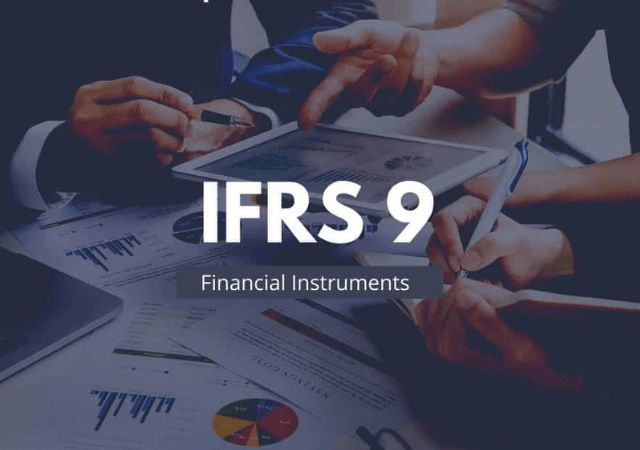What is the Enterprise Innovation Scheme (EIS)?
The Enterprise Innovation Scheme (EIS), introduced by the Inland Revenue Authority of Singapore (IRAS), is designed to encourage businesses to invest in research, innovation, and capability development. Under this scheme, companies can enjoy enhanced tax deductions and cash conversion options for qualifying innovation-related expenditures incurred between Year of Assessment (YA) 2024 and YA 2028.
This initiative aligns with Singapore’s long-term goal of fostering a competitive, innovation-driven economy by providing tax incentives to businesses that engage in research and development (R&D), intellectual property (IP) creation, and workforce upskilling.
Key Benefits of the EIS Enhanced Deduction
Eligible businesses can claim up to 400% enhanced tax deductions on qualifying expenditures under the EIS, significantly lowering their taxable income and reducing overall tax liability.
Breakdown of EIS Tax Benefits
The EIS scheme covers five key innovation-related activities, each eligible for enhanced tax deductions:
-
Research & Development (R&D) Activities
-
Businesses can claim up to 400% tax deduction on qualifying R&D expenditures conducted in Singapore.
-
This covers salaries for R&D personnel, equipment costs, and outsourced R&D services.
-
-
Intellectual Property (IP) Registration Costs
-
Companies can enjoy 400% tax deduction on expenses related to patent applications, trademarks, and design registration fees.
-
Encourages businesses to protect their innovations and strengthen their competitive advantage.
-
-
Acquisition & Licensing of Intellectual Property (IP)
-
Businesses that acquire or license IP for innovation purposes can claim 400% tax deduction on qualifying costs.
-
This applies to IP rights purchases, licensing agreements, and franchise-related IP costs.
-
-
Training Expenses to Upskill Employees in Innovation-Related Fields
-
Training costs related to advanced technology, AI, digital transformation, and other innovation-driven skills qualify for 400% tax deduction.
-
Helps businesses build a future-ready workforce.
-
-
Innovation Projects with Polytechnics and ITEs
-
Companies collaborating with Singapore’s Polytechnics and Institutes of Technical Education (ITEs) on innovation projects can claim 400% tax deduction.
-
Encourages industry-academia partnerships to drive real-world innovation.
-
Cash Payout Option for Eligible Businesses
Startups and SMEs that may not yet be profitable can benefit from the cash conversion option under the EIS. Instead of tax deductions, businesses can opt to convert up to S$100,000 of qualifying expenditures into a non-taxable cash payout at 20% (capped at S$20,000 per year).
This provides much-needed cash flow support for smaller businesses and startups that invest in innovation but do not yet generate significant taxable income.
Who is Eligible for the EIS Enhanced Deduction?
To qualify for the Enterprise Innovation Scheme (EIS) tax benefits, businesses must:
- Be a Singapore-incorporated entity subject to Singapore’s corporate tax regulations.
- Engage in qualifying innovation activities as defined by IRAS.
- Maintain proper documentation of expenses related to R&D, IP acquisition, training, and innovation projects.
It’s important to ensure that all claims align with IRAS guidelines to maximize tax benefits while staying compliant.
Maximizing Tax Benefits Under the EIS: Best Practices
To fully leverage the tax savings under the Enterprise Innovation Scheme (EIS), businesses should adopt strategic tax planning and compliance practices. Here’s how:
1️⃣ Track & Document Innovation-Related Expenses
-
Maintain detailed records of R&D costs, IP registration fees, training invoices, and collaboration agreements to support tax deduction claims.
2️⃣ Work with Tax & Accounting Professionals
-
Tax consultants can help structure business activities to maximize eligibility for EIS benefits while ensuring compliance with IRAS regulations.
3️⃣ Align Innovation Efforts with Business Growth Plans
-
Invest in R&D, IP protection, and workforce upskilling that align with long-term business goals to optimize both tax benefits and competitive advantage.
4️⃣ Leverage the Cash Payout Option if Beneficial
-
If your business is in the early stages or operates at a lower taxable income, opt for the cash payout to improve liquidity.
How the EIS Compares to Previous Tax Incentives
Before the Enterprise Innovation Scheme, Singapore offered various tax incentives for R&D and IP-related activities. The key difference is that EIS significantly enhances tax deductions from 250% to 400% for eligible activities, making it one of the most generous innovation-focused tax schemes introduced by IRAS.
Businesses that previously benefitted from the Productivity and Innovation Credit (PIC) Scheme or R&D Tax Incentives should review their innovation strategies to transition into the EIS framework effectively.
Conclusion: Why Your Business Should Leverage the Enterprise Innovation Scheme (EIS)
The Enterprise Innovation Scheme (EIS) enhanced deduction, available from YA 2024 to YA 2028, presents a golden opportunity for Singapore businesses to lower tax liability, boost innovation, and improve cash flow.
By investing in R&D, protecting intellectual property, upskilling employees, and collaborating with educational institutions, companies can benefit from 400% tax deductions or cash payouts.
To ensure you maximize your tax savings while staying compliant, consider working with an experienced tax consultant to structure your claims effectively.
Need Expert Advice on EIS?
If you’re unsure how to optimize your tax strategy under the Enterprise Innovation Scheme, reach out to a tax professional for tailored guidance. Don’t miss out on this chance to fuel innovation while reducing corporate taxes.
Get Expert Guidance & Save More!
Don’t navigate the complexities of Singapore’s tax system alone. Our team of tax professionals can help you structure your startup for maximum tax savings while ensuring full compliance.
Contact us today to optimize your tax strategy and save more!
For more detailed information on compliance programmes and guidelines, please refer to IRAS’s official documentation and resources.
Disclaimer: This article is for informational purposes only and does not constitute any professional advice. Feel free to contact us to consult with our professional advisors team for personalized advice and guidance.
Sources: https://www.iras.gov.sg/schemes/disbursement-schemes/enterprise-innovation-scheme-(eis)






